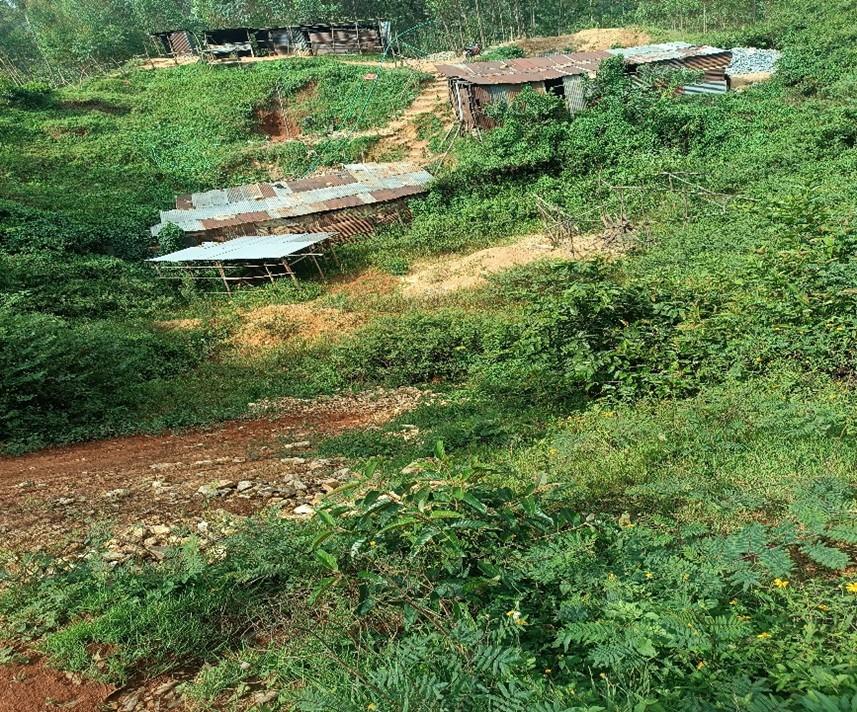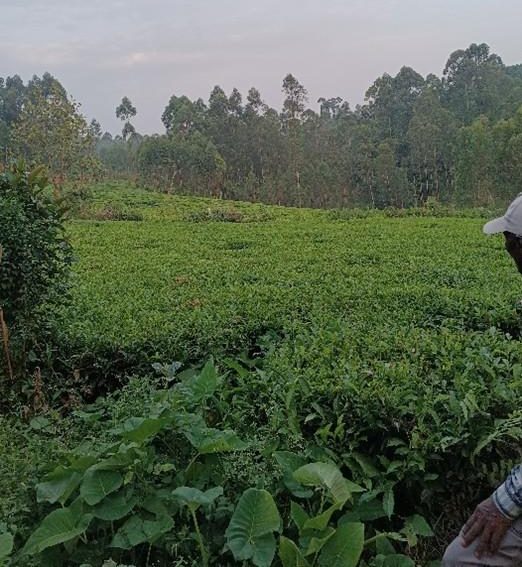BY:
2024 FinAccess Household Survey: Reflections from the field - Exploring Vihiga’s sub-economies: Effects on household finances and health
February 25th, 2025
During the FinAccess 2024 fieldwork in Vihiga County, I had the opportunity to closely observe the intricate economic landscapes that often escape broad statistical surveys. While the FinAccess 2024 survey provides valuable macro-level insights, the effects of local economic activities that shape household finances are not captured in the data. These subeconomies reveal complex survival mechanisms and income-generation strategies that have critical implications for individual and family economic resilience.
Subeconomies, defined as smaller economic activities within a larger economic system[1]-, play a vital role in shaping the socio-economic landscape of many regions. These localised economic activities significantly impact community development and livelihoods. Two particularly notable small-scale economic activities in this area that stood out for me during the FinAccess 2024 data collection exercise were gold mining and tea farming. Gold mining taps into the area’s mineral wealth, while tea farming capitalises on the region’s favorable climate and terrain.
Gold mining in Vihiga County is predominantly artisanal and small-scale, with several homesteads engaging in the extraction process. Gold is extracted using rudimentary techniques and is often processed with manual grinders. However, despite the allure of financial gain—0.1 grams of gold can be sold for approximately 700 KES, translating to 7,000 KES per gram, the mining sector presents numerous challenges; the work is inherently dangerous, exposing miners to life-threatening conditions and harmful chemicals, such as mercury. Moreover, the reliance on brokers for sales eliminates miners’ ability to seek better prices directly from buyers, often resulting in inadequate compensation for their labor. The environmental consequences are severe, as mining operations degrade the land and pose risks of subsidence, rendering affected areas unusable for other purposes, including agriculture or habitation.

Gold mining site in Viyalo, Vihiga County. The tunnel entry points covered by the iron sheet structures
In contrast, tea farming stands out as a more stable and less hazardous livelihood choice for many families in Vihiga County. Small-scale tea farming is often practiced on family-owned parcels of land, where pickers work daily until 2 p.m., and then get back to their own activities including tending to their own plots, blending labor with personal agricultural practices. The tea pickers are paid a daily rate of around 300/= to 400/= a day. The farmers also get monthly bonuses on the tea they supply on top of the rate of. The farmers in these areas boast of their tea being the best as it is purely hand-picked. The benefits of tea farming are tangible: improved household income and sustainability, as the crop can thrive with proper care and cultivation methods.

Tea farms in Mudete, Vihiga County
While both activities provide vital income, tea farming typically promotes a healthier, and more sustainable lifestyle, that empowers individuals, and families. In contrast, gold mining, with its extractive nature, often leads to a cycle of poor health, environmental degradation, and dependency on external brokers, resulting in limited financial returns for the labor invested. The risks associated with mining not only threaten individual miners but also jeopardize the broader community by degrading land and reducing its potential for future agricultural use.
The economic choices in Vihiga County reveal complex household financial dynamics that extend beyond mere income generation. During our fieldwork, we observed stark differences in how income from these subeconomies is utilized. Gold mining earnings often showed a troubling pattern of transient wealth, with a significant portion diverted to alcohol consumption and immediate personal expenditures. In contrast, tea farming income demonstrated a more structured approach to household financial management. Tea farmers tended to channel their earnings more systematically into essential needs: children’s education, and agricultural investments. This difference highlights not just an economic choice, but a broader lifestyle and financial decision-making pattern.
The subeconomies of Vihiga County show the complexities of local economic activities and their far-reaching impacts on community welfare. Gold mining, while providing immediate financial returns, poses significant risks to health and the environment, whereas tea farming offers a more viable path to sustainable development.
[1] ‘Definition of SUBECONOMY’, accessed 5 September 2024, https://www.merriam-webster.com/dictionary/subeconomy.


